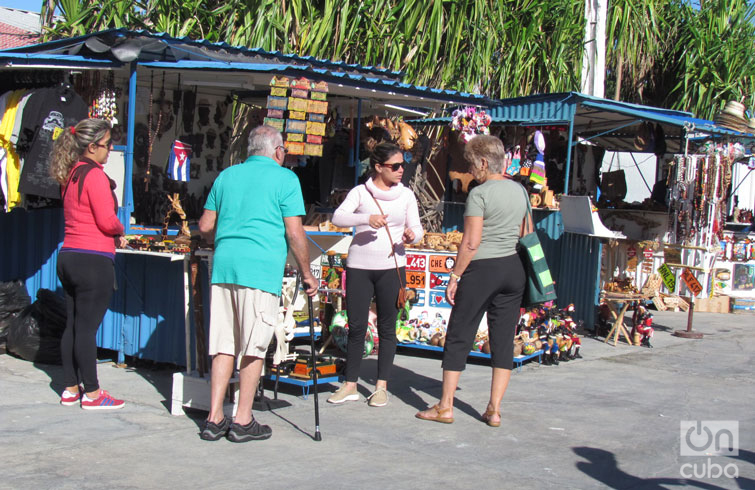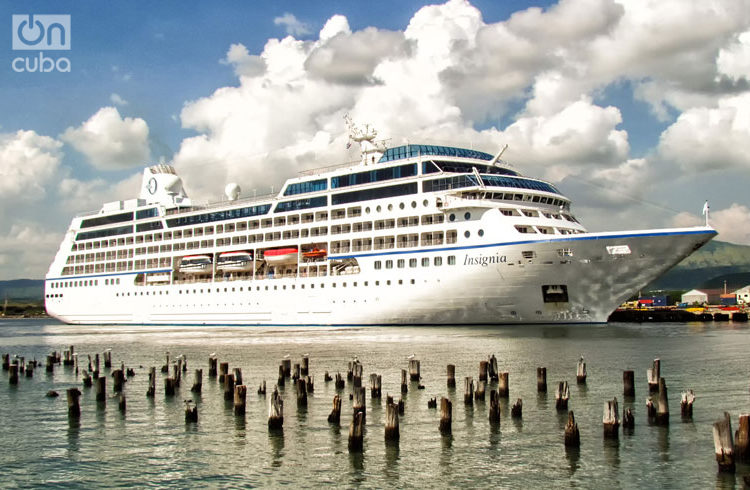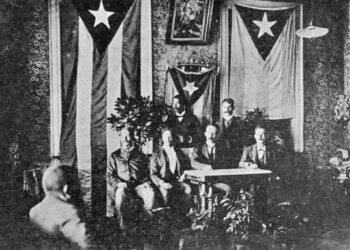The Obama administration started modifying the Cuban Assets Control Regulations (CACR) based on its policy objectives: “getting involved with and empowering the Cuban people,” “increasing contacts to support Cuban civil society” and “promoting the independence of citizens from the government.” This was done several times since 2009. The last time was on March 15, 2016, before the president’s visit to Cuba. The Office of Foreign Assets Control (OFAC) and the Department of Commerce Bureau of Industry and Security (BIS) announced at the time “significant amendments” to the CACR in several senses, among them allowing “non-tourist personal trips” to Cuba.
The move was designed to clear the way for commercial flights, announced in January of that year. Going to the island would then be simpler: it no longer would be necessary to travel in groups or agency packages, but rather the individual base would function, the so-called face-to-face. It was only required to fill out an application declaring the educational purpose of the person’s trip to cross the Straits. Shortly, with the regular flights, they already would be able to make online airline bookings for Cuba, just as is done to travel to Buenos Aires, Paris, Moscow or Burundi.
One more step was taken in February 2016: both governments signed a memorandum of understanding to reestablish direct regular flights based on what was outlined in the third round of talks in Washington DC (December 14-16, 2015). The 110 daily operations to Cuba by U.S. airlines where established then, connected to the Havana, Camagüey, Cayo Coco, Cayo Largo, Cienfuegos, Holguín and Manzanillo international airports, among others; and with flights from places like Miami, Fort Lauderdale, Tampa, Orlando, New York and Los Angeles. It was an action by the executive to cement his policy before concluding his second and last term in office by involving this sector of the economy, one of the most dynamic and powerful and with sufficient lobbying capacity in Congress.
However, the Trump administration would modify some of these processes. To the effect of what interests us here, one of the most important consisted in putting an end to those individual trips through a presidential memo signed in Miami last June. Put into practice, this other move will undoubtedly have a specific impact on the Cuban economy, although there is consensus among academicians and experts on both sides in that it will not function as an Armageddon.
The tourist development plans, in place since the fall of socialism in Eastern Europe and the USSR, have been designed without the presence of the northern neighbors, no matter how welcome they have been or even continue being. The island’s smokeless industry is not tied to a single market, and has gotten to this point without the U.S. presence.
Last November, the Department of the Treasury published the measures Trump had announced in June. The measures prohibit, except for U.S. cruise and airline companies, U.S. companies’ transactions with 180 specific entities controlled by Cuba’s military, intelligence and security services.
They also eliminate the favorite option of Americans wishing to get to know the island: traveling independently under one of the 12 categories authorized by the U.S. government, that of “educational visits,” which includes trips for academic purposes as well as the exchanges called “people-to-people.”
The latter possibility under which Americans promised to devote their trip to learning about the Cubans’ culture and showing them theirs, no longer exists in the individual mode. It is still possible to choose it as part of organized trips.

If we follow the spirit and word of the measures announced last November, which literally seek to affect the Cuban military and their enterprises, these would seem like loose electrons that nourish and finance their own activities based on the incomes of the enterprises under their orders and command, as if they did not hand over to the State what they collect.
Of course, in Cuba, as in any other country, the State decides the annual budget of its armed institutes and its security, just like it does with sectors like education, sports or construction. Perhaps one of the biggest inconsistencies of this Trump administration Schindler’s list consists in this (but the other way around), that is to say: cutting the access to hotels and tourist entities controlled by the military entities, not to the State’s hotels and entities, which in the end would be the Black Beast in this story.
A second paradox lies in that those relations again seek the “prosperity of the Cubans and independence from the government.” However, it is obvious that canceling the self-certification will imply damages to the emerging private entrepreneurs. According to estimates, the non-state sector receives around 31 percent of the dollars coming into the country from tourism, between B&B, private restaurants (paladares), the rental of “almendrones” (old U.S. cars) or of those so colorful convertibles in which tourists from many parts of the world like to have their pictures taken in front of the Havana Capitol Building.
It is estimated that during the last two years 40 million dollars were transferred from the United States to the new entrepreneurs, which by the way include horizontal tourist guides – in other terms, not governmental.
Apparently, there are tolerable and intolerable, good and bad communists for the current occupants of the White House, as well as for others who were there before. The fact that these measures were announced during Trump’s trip to the Asian continent, and specifically to countries like China and Vietnam, governed by communist parties and with similar human rights and democracy records as those of Cuba, seen from the U.S. viewpoint, is ironic, and also that this is a problem that the Obama administration tried to correct in its way and is being retaken.
An uncomfortable double standard continues there: Americans don’t need to ask permission from their government to travel to China or Vietnam, and much less obligatorily in groups. In Cuba’s case they do. Anomalies of the Cold War (again) emphasized by this administration.
By eliminating the face-to-face, the feature/value of U.S. culture is also eliminated: the individual’s role in relation to his own decisions, as well as the freedom to choose. The Airbnb online bookings offered and still offer multiple options for diverse budgets. Indeed, the clients went from the airport to the private home chosen without any mediation. Now, given the aforementioned, they have no choice but to join a supervised group experience, given that, according to what was reported, “each group must be accompanied by a group employee, consultant or agent to make sure each traveler maintains a full-time schedule of educational exchange activities.”
In these prohibitions the gap between reality and papers is rather big. They are characterized by a high political-symbolic component, as diverse actors have recognized.
Beyond regulating the hotel where the groups authorized to travel to the island would stay, the receipts that must be kept for five years or the blockades to possible businesses in the scarce opportunities the embargo allows, we’ll have to see if an American with abundant sweat on the forehead can be prevented from abstaining to buy a Cachito, Tropicola or Najita soft drink or a bottle of Varadero rum at a Habaguanex bar, cafeteria or restaurant, those that abound in Old Havana, all of which have been forbidden on an official list because they are produced by CIMEX, one of the corporations that, according to the Trump administration, classifies among the incubi of the military. Or if it can be banned that some go to Santa María or another beach to the east of Havana during a free space or gap in the official group activities. It would be like leaving Paris without seeing the Eiffel Tower. Or to Greece without the Acropolis – in short, that which the experts in tourism call “brands.”
But let’s see: is there anything as educational as having a drink outside the program, without anyone’s supervision, interacting with a Cuban?









